Aircraft loaded with British troops and aid will leave RAF Brize Norton this morning for the Caribbean, as part of the relief effort for areas devastated by Hurricane Irma.
A C17 and a Voyager will fly to the Caribbean to deliver rations, water, medical equipment and other humanitarian aid.
230 soldiers will leave RAF Brize Norton for the Caribbean today, a combination of both Royal Marines and Royal Engineers.
The supply ship RFA Mounts Bay has already been deployed to help deal with the aftermath of Hurricane Irma with 40 Royal Marines on board, as well as army engineers and equipment. HMS Ocean will head to Gibraltar to pick up relief supplies before joining her.
RFA Mounts Bay is currently in the British Virgin Islands and yesterday was assisting in Anguila.
International Development Secretary Priti Patel said:
“When crisis hits, it is right that the world looks to Britain for its leadership and the UK has already provided lifesaving support.
The UK has already sent emergency UK aid relief supplies including 200 shelter kits, each able to support a family of five, providing immediate relief to 1,000 people who have lost their homes.
I have sent world leading humanitarian experts to the region who are working with the British Red Cross to urgently assess need and ensure that the UK’s help reaches those whose lives have been torn apart by the destruction wrought by Hurricane Irma.”
Defence Secretary Sir Michael Fallon said:
“In the face of such devastation, I have authorised the deployment of a task group to the region.
Over the next 24 hours troops and engineers held at high readiness in the UK will deploy with helicopters to support the relief effort. I am also sending a command headquarters to co-ordinate our efforts.”
With the danger posed by Hurricane Jose which will hit areas already affected by the storms we are diverting a second ship to the Caribbean, our flagship HMS Ocean, to bring the help that will be needed in reconstruction after the hurricanes has passed.”
Additionally, Team Rubicon has a team in transit to the Caribbean to assess the humanitarian requirements after Hurricane Irma slammed into islands causing widespread devastation.
Team Rubicon’s primary mission is to enable ex-servicemen and women to rapidly provide relief to those affected by disasters, be they domestic or international.
Hurricane Irma, a category 5 Hurricane, is the strongest Atlantic storm in recorded history. Irma is forecast to remain a powerful category 4 or 5 hurricane during the coming hours and days.
It is highly likely to affect the islands within the next 48 hours, bringing with it dangerous winds, storm surges, and extreme rainfall, along with rough surf and rip currents. There is potential for significant humanitarian impact – many thousands of people have been evacuated into emergency shelters. The hurricane has destroyed buildings and caused major flooding.
Director of Field Operations Oz Lane said:
“It’s clear that Hurricane Irma has absolutely devastated the affected islands, destroying buildings, leaving families homeless and seeing a tragic loss of life. The local communities are going to face enormous challenges in the coming days, weeks and even months.
Team Rubicon will be assessing what the immediate
humanitarian priorities are and what resources we need to mobilize to provide support.
Our team in the UK will continue to monitor the path of Hurricane Irma as well as Hurricane Jose which has the capacity to cause a devastating secondary impact.”


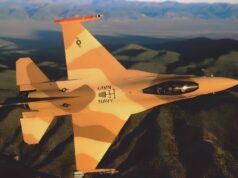


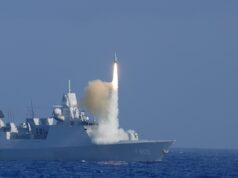


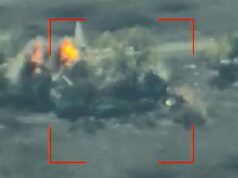
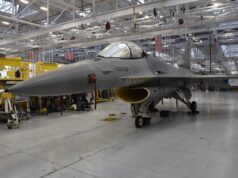
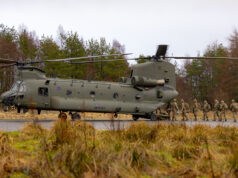


Please tell me the Foreign Aid budget is being used to pay for this???
We are aiding British territories, not some random country.
Absolutely not! These aren’t foreign countries and the responsibility of UK.
Hopefully this disaster opens our politicians eyes to how useful and important having a helicopter carrier is and the roles that ‘warships’ can play. Would be nice to see HMS ocean replaced when Shes sold. maybe with a helicopter carrier/ hospital ship (HMS seacole/nightingale anyone?) this should be paid for/ maintained by the DFIDB and gifted to the RN. Or in future we will have to send a carrier task group to do what ocean or a hospital ship could do at a fraction of the price. which lets face it is what it boils down to nowadays.
Ha you’re kidding right? If we used the foreign aid budget for this, how could we possibly continue to line the pockets of African dictators and fund other countries military ambitions. ?
Well said – right on point!
Third largest Aid budget in world and DFID can’t even get ahead of the curve for our own.
Big up the service personnel!
It is worth noting that these are British territories – not foreign nations and why are we begrudging people who have lost everything whilst we are in a position to do something positive. Our armed forces are world leaders in this type of work
The comments on here are embarrassing sometimes, they see “aid” and “Caribbean” and then froth at the mouth. Not even aware that British overseas territories are in desperate need of assistance.
Good comment Rob ?
Before everyone gets all self-righteous, no-one is saying we shouldn’t help but delivery and distribution of said aid still needs to be paid for – facts don’t have feelings. As such, this shouldn’t be shouldered by the cash-strapped MoD. DFID is literally sitting on billions!
Facts may not have feelings but seem to be missing from your brain as you espouse ridiculous nonsense onto this message board.
UK territories are the responsibility of the UK and the natural disaster relief and defence for these is already factored into UK budgets. Why on earth are you going on about additional costings?
BOTs do come under DfiD, not just for disaster relief but for rebuilding and development (Montserrats airport, tourism/self sufficiency planning).
After this is over DfiD needs to plan for future responses on a local lever. Disaster management, training, emergency supplies, keeping law and order/calm, building regs etc. It may not be sexy or decal worthy but it’s important and seems to be missing.
They’ll always need help for larger disasters but “an ounce of prevention”. Even if it’s extra kit on site ready for responders or having a group of people with local knowledge that are available.
Either way military needed to be funded to assist, how it handled now is awful (funds held by other departments, no set amount to plan to, having to take/fight for partial reimbursements etc). It need to be taken care of and questions asked loudly. The floods and Olympic funding were issues at the time.
Should be a non issue but UKGov likes its red tape and department territoriality.
Despite what will be fantastic work from the military and the PR we failed to fulfill a NATO commitment, the cornerstone of our defence (a minimum requirement for government) to help a BOT recover from disaster (a minimum requirement for government).
We should not, even with currently available funds in government, be in a situation where we have to make that choice, we should be more than capable of doing both and still have some capacity left. Yet here we are and it needs fixed.
@David
It’s not about being self-righteous, it’s about being decent, it’s still happening as we speak with two more hurricanes on the way, these are British citizens in dire need of help, people are being killed and their homes ripped into shreds losing all their possessions and the first comment is you asking how the aid is getting paid for, that is what’s embarrassing.
With respect Kieran, how is it embarrassing to ask who is paying to deliver and distribute aid? It would only be considered embarrassing if we as a nation, sat back and did nothing to help and that is simply not the case. Our Armed Forces are squeezed tighter and tighter almost at every turn whilst the DFID becomes more bloated each year to the tune of billions. It’s only fair – and right – that the costs should be borne by them and not the MoD.
It’s the timing of it David, if a family in a car crashed into your garden wall and were seriously injured would you ask them how your wall is getting paid for while dragging them out of their car, no i’m pretty sure you wouldn’t. Not only that it’s the only thing mentioned in your comment, like it’s the most important thing about the article or even the disaster itself, I’m pretty sure none of the people going through it are thinking about how their help is getting paid for so why should you.
And if you read the article you would of seen “International Development Secretary Priti Patel” because humanitarian assistance does come out of the DFID David, it would of took you 30 seconds to find that out.
Kieran you are clearly too emotional and don’t twist my words. I never said DFID doesn’t cover the cost of the aid which they clearly do and no-one is arguing that. However, Pratel did NOT say the cost of DELIVERY and DISTRIBUTION is covered by her department. Who pays for the assistance that will be provided by the Armed Forces outlined by Fallon above? – that’s what I am referring to.
When the Armed Forces are used in humanitarian situations – which I fully support – the cost of such should be borne not by the threadbare defence budget but by the bloated DFID. That is only right and fair.
Not sit down and have a nice cup of tea to calm your nerves……
DfiD will cover supplies and some running costs, doesn’t pay for the equipment, the personnel, their training etc.
This isn’t a case of whether should we (not up for debate, we absolutely should) it’s how best to achieve it.
This needs to be handled far better. Taking funds from the strapped MOD when DfiD struggles to find projects to spend its own budget on is ridiculous. Engineers especially are a limited resource, we could very well end up having to choose whether to support troops or let people go without a hospital (civilian contractors are not always viable).
Remember next year we are losing an amazing asset (one being sent as needed at the expense of a defence task group position) without replacement. No, a 3bn carrier should not be rented out for these kinds of tasks even when ready.
A relief fleet, fully DfiD funded, RFA manned & forward deployed is well within DfiD budget. Think a few LPH with specialist hospital beds and a couple of Bays and Tides meaning full availability across the MOD/DfiD.
It could;
a) take massive strain from the MOD/military, freeing up funds for personnel & hulls.
b) be able to offer assistance anywhere in the world even faster.
c) be fully under the DfiD portfolio.
d) fly the flag & departments banner.
e) be another boost to UK industry.
f) be more focused on the task and efficient.
g) realistically be in more than one place at a time.
h) take some of the problems faced meeting the spending level.
i) if worst came to worst be used for military tasking (STUFT without the legal/PR/logistical nightmares).
The option if all went to hell to use the RFA fleet the other way around to support the DfiD fleet would still be there.
Oh so you knew the aid would be coming out of DFID, but your main concern was who picks up the fuel bill to deliver it.
Nice one David, glad someone’s got that covered ?
@Gerard
That’s a good idea, I usually point out on here that there are a lot more ways of saving money other than the DFID budget, and in the case of the billions in tax avoidance that would be making money, but I do not agree with the DFID budget ringfenced at 0.7%, that was David Cameron trying to detoxify the Tory brand (good luck with that) during times of hardship is should be reduced accordingly.
You’re idea of a sort of DFID fleet is a good one and one I would definitely support.
I do have to point out though and this is to David as well, these are British territories, and one of the armies main aims is to provide assistance to the civil authorities on British soil, its there in black and white on the Army website. If there were floods in the UK and the Army step in to assist not one person would be asking who’s picking up the bloody fuel bill, their training or who bought the equiptment they were using.
Well reasoned Kieran
Good responses as always. Also I would love us to use some of the Aid budget to build some hospital and development ships- UK industry would will, we would build up our capability and developing nations would win.
?
Yeah it’s a good idea, we could genuinely see a real difference being made with our money. A hospital ship and LPDs that could be used by DFID and the mod seems to make a whole load of sense.
The Americans are sending a nimitz class carrier to help and a number of Destroyers and frigates and LPHD’S, so i think its entirely responsible to send HMS Ocean. The treasury has emergency funds to cover the cost of such operations, so you dont have to worry about another senital or Tornado sqn getting axed to pay for it. For once this is tax payers money extremely well spent.